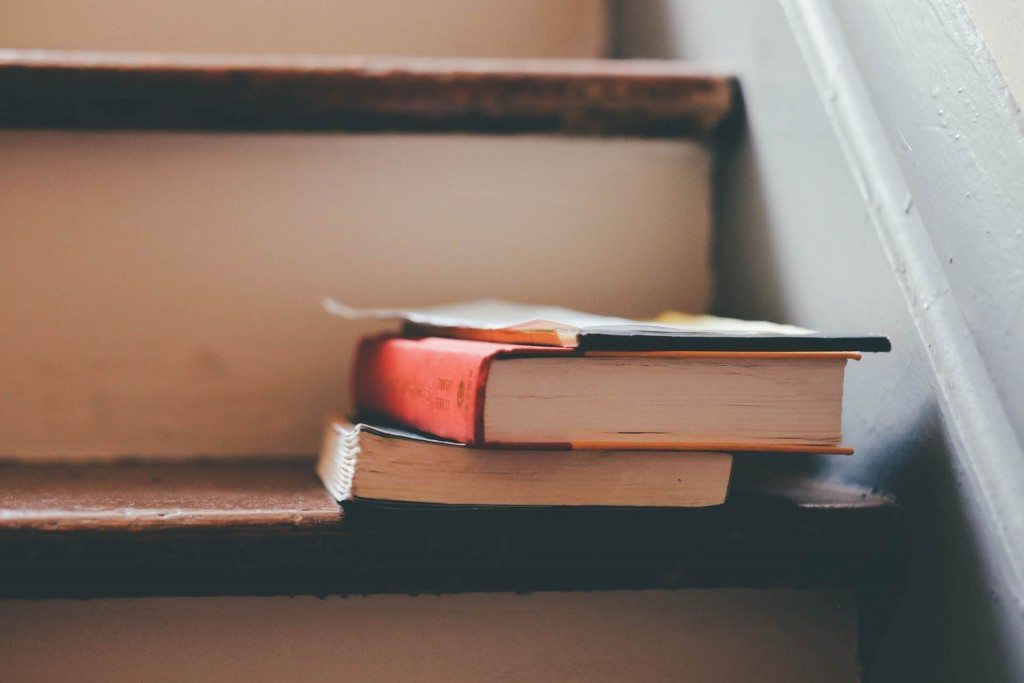I bought a Kindle several years ago when I was still living in Australia.
I never expected to be a huge fan of the whole screen-reading experience—I’ve always been a lover of physical books. Still, I wanted access to some Canadian titles that I couldn’t get for a reasonable price in rural Australia, so e-books sounded like the perfect solution.
In addition to scratching that itch of homesickness, I also enjoyed having access to a ton of free books. I downloaded all the classics and trolled promotions regularly to score reduced prices on not-free items. I also chose to purchase a small number of books I knew I would read only once, because the digital formats were cheaper than paperbacks.
But in spite of its many benefits, I really didn’t use my Kindle much.
I’m a homebody with four kids, and I don’t get to travel often, so I had little occasion to need the device. I downloaded far more free books than I could ever read, and at the same time I still went to the public library each week to stock up on physical books. I liked toting that heavy bag home with me, liked being able to hold those volumes in my hands.
In 2013 I moved back to Canada, and regained easy access to all those books I wanted in the first place. At that point, I found myself using the Kindle very, very infrequently. Maybe three times a year.
Then one day I found my Kindle on the floor, its screen fractured. I assume one of my kids found it and either dropped it or stepped on it. Or both. When I turned it on, only half of the screen could be read.
Faced with a decision to replace it or not, I instantly knew it wasn’t worth it to me. I realize there are people who love their electronic readers, especially if you want instant access to the latest books, or if you’re a reader but not a re-reader, or if you live in tight quarters and need to avoid clutter. But for me, this has been a great excuse to focus even more on cherishing old-fashioned books.
I love my floppety old Bible—just love the way it lies open in my hand, the weight of it. Its leather feels like a second skin, like holding a piece of my life in my hand. It makes me think about the most difficult moments I’ve been through, and how I came through the other side still in one piece.
There’s that hardcover of Harper Lee’s Go Set a Watchman that my dad gave me recently and has been waiting for me to read so we can discuss it. And there’s Michael Christie’s The Beggar’s Garden, which I bought for Dad’s birthday because the author is from our hometown, and I thought that was kind of cool.
There’s the oh-so-beautiful double volume of Julia Child’s Mastering the Art of French Cooking. I know one day my daughter will inherit these cookbooks, and use them, and pass them on to her children. I still have my great-grandmother’s cookbook with all of its stains and notes and faded script.
What of those two or three boxes of beautiful books from my university days, which completely disappeared during a home renovation? Were they accidentally given away? Whose hands are they in now? It’s sad that I don’t have them but interesting to wonder: like so many of the friends I made from those formative years, where are they now?
On a trip to Canada years ago, I bought a secondhand copy of Mary Lawson’s Crow Lake. I took it back to Australia and handed it to a friend: “Read this,” I said. “This reminds me of home.” Sharing that book with a special person was sharing a little piece of myself. I couldn’t have done that with an e-book.
My broken Kindle prompted me to consider the true beauty of books, the way they feel, their smell, the inscriptions you find on the inside of their covers. Their torn dust jackets and stained pages and taped spines a reminder of how loved they have been.
While technology has made so many things possible, sometimes I wish for life to be that little bit simpler again. I spent a lot of time recently looking through old family photographs and realizing how precious they are, being able to point to something and tell my kids about those faces, scenes, relationships (the ones that worked out and the ones that didn’t). By contrast, almost all of the photos I’ve taken or received in the last ten years are on a computer. I pray this never happens to our books.
I’m all for living simply, for not holding on to things just for the sake of it. I’m all for e-books as a supplementary reading experience, or for informational-type publications, quick-reads, and the like. But let’s not forget what makes old-fashioned books important.
Books are history. They are memory. They are community.
Share one today.
